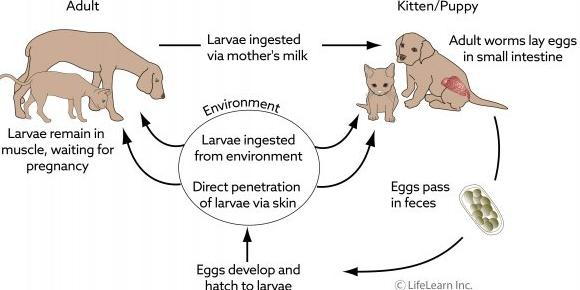Deworming is crucial for your cat’s health. It helps remove harmful worms from their system. But, what happens after deworming a cat? Let’s find out!
Contents
Why Deworming is Important
Deworming keeps your cat healthy. Worms can cause serious health issues. They can lead to weight loss, vomiting, and diarrhea. Deworming removes these worms and keeps your cat safe.

Credit: www.danforthanimal.com
Types of Worms in Cats
Several types of worms can infect cats. The most common ones are:
- Roundworms
- Tapeworms
- Hookworms
- Whipworms
Each type of worm affects your cat differently. Your vet will choose the best deworming medication for your cat.
What to Expect After Deworming
After deworming, your cat may show some signs and symptoms. These are normal and usually temporary. Here are some common things to expect:
1. Changes In Appetite
Your cat’s appetite might change. Some cats eat more, while others eat less. This change is usually temporary and should return to normal soon.
2. Vomiting
Some cats may vomit after deworming. This is because the medication can upset their stomach. If vomiting continues, contact your vet.
3. Diarrhea
Diarrhea is another common side effect. It happens as the worms are expelled from your cat’s system. Ensure your cat stays hydrated during this time.
4. Lethargy
Your cat might seem tired or lethargic. This is normal and should improve in a day or two. If it persists, consult your vet.
5. Visible Worms In Stool
You might see worms or worm segments in your cat’s stool. This is a good sign! It means the medication is working.
Post-Deworming Care
Taking care of your cat after deworming is essential. Here are some tips to help your cat recover smoothly:
1. Provide Fresh Water
Ensure your cat has access to fresh water. This helps them stay hydrated, especially if they have diarrhea.
2. Monitor Their Behavior
Keep an eye on your cat’s behavior. If you notice any severe or prolonged symptoms, contact your vet immediately.
3. Maintain A Clean Environment
Clean your cat’s litter box regularly. This helps prevent re-infection and keeps your cat healthy.
4. Follow Vet’s Instructions
Always follow your vet’s instructions. They know what is best for your cat’s health.

Credit: naturepetstore.com
Preventing Future Infections
Preventing future worm infections is crucial. Here are some tips to keep your cat worm-free:
1. Regular Deworming
Schedule regular deworming sessions with your vet. This helps keep worms at bay.
2. Flea Control
Fleas can transmit tapeworms to your cat. Use flea prevention products to protect your cat.
3. Keep Your Cat Indoors
Indoor cats are less likely to get worms. Keep your cat indoors to reduce the risk of infection.
4. Clean Litter Box Regularly
Regularly clean your cat’s litter box. This helps prevent the spread of worms.
Frequently Asked Questions
What Are The Side Effects Of Deworming Cats?
Common side effects include mild diarrhea, lethargy, and loss of appetite.
How Long Until Worms Are Gone?
It typically takes a few days to a week.
Can Deworming Cause Diarrhea In Cats?
Yes, mild diarrhea is a common side effect.
Should I Isolate My Cat After Deworming?
No, isolation is not usually necessary.
Conclusion
Deworming is vital for your cat’s health. Knowing what to expect after deworming helps you care for your cat better. Monitor their behavior, provide fresh water, and follow your vet’s instructions. By doing so, you can ensure a smooth recovery for your feline friend.
Prevent future infections by regular deworming, flea control, and keeping your cat indoors. A clean environment also helps keep your cat healthy and worm-free.
Remember, a healthy cat is a happy cat!

Katie Lindsey is a passionate cat lover and founder of Cats Solution, a comprehensive resource for all things feline. With a lifelong love for cats and extensive knowledge in their care and behavior, she provides expert advice and solutions to cat owners. Through her website, Katie fosters a supportive community where cat enthusiasts can find guidance and heartwarming stories. A dedicated advocate for animal welfare, Katie also promotes responsible pet ownership and adoption. Join her on this purr-fect journey celebrating the joy of feline companionship.



